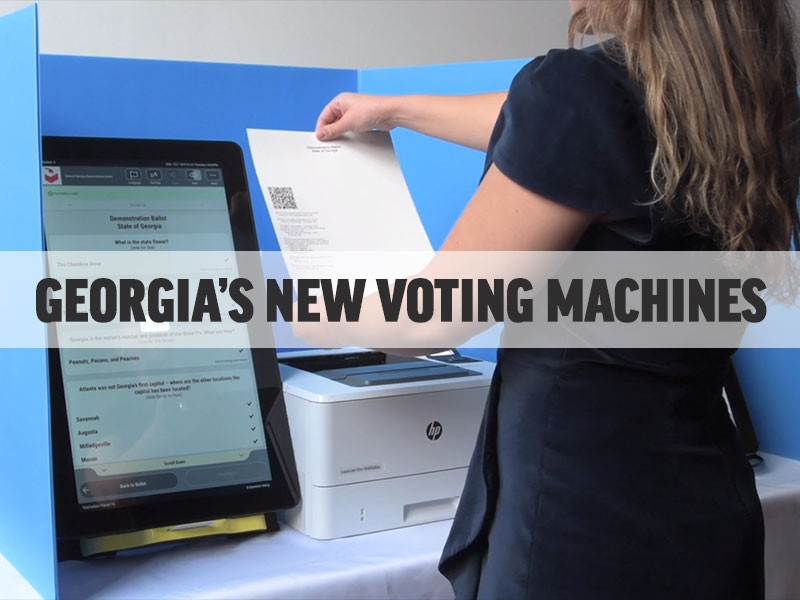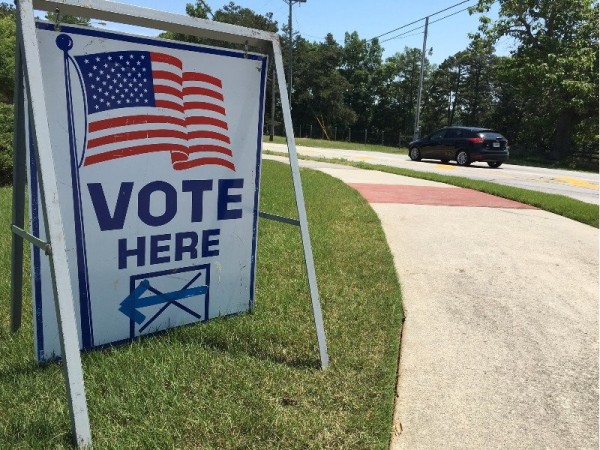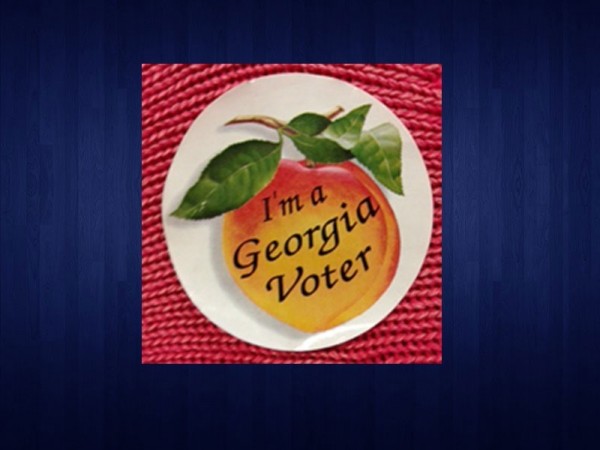ATLANTA (AP) Georgia's elections board on Wednesday approved a set of rule changes to govern the use of new voting machines that are being rushed out statewide for the state's fast-approaching presidential primaries in March.
State Election Board members acknowledged some of the newly adopted rules may need further fine tuning. They were approved regardless because of the tight deadline for rolling out the new machines.
``Because of the timeline ... what seems to work best is that we actually would implement the rules that have already been posted,'' said Secretary of State Brad Raffensperger, the state board's chairman. ``Then we would consider amending those rules further, to further tweak this and hone down the rules as we want them.``
Any further changes would require a another 30-day period for public comments before the board could vote to approve them.
Georgia's presidential primaries are set for March 24, but advance voting begins three weeks earlier on March 2. The state is racing to distribute more than 33,000 new machines, which combine touchscreen voting with printed ballots, to Georgia's 159 counties.
Concerns about election security caused a federal judge last year to order Georgia to replace its outdated, paperless voting system before any ballots are cast in 2020. An attorney for Raffensperger's office told the judge last week that deliveries should be completed by mid-February. County election officials still have to test the new machines and train poll workers ahead of the primaries.
Many of the changes adopted Wednesday updated rules by replacing references to the old voting system with references to the new one. One rule, for example, specifies how the new machines are to be stored, transported and tested, as well as and how polling places are to be set up.
Another change updates absentee voting procedures to comply with a state law passed last year in response to criticism during the 2018 election cycle over absentee ballots being rejected for such minor reasons as signatures not exactly matching those on file with election officials. The new rule requires county election officials to try to contact voters whose absentee ballots are rejected by email and telephone to notify them of the rejection. Previously only a mailed notice was required.
The board rejected one proposed rule change that would have allowed counties to include the number of voting booths available on the last day of advance voting when calculating the minimum number of voting booths they need on Election Day.
State Rep. Jasmine Clark, a Democrat from Lilburn, criticized the proposed rule, saying it would undermine the law's requirement that counties provide one voting station per 250 active voters in a precinct.
The board instead amended the rule to say counties can subtract the number of voters who participated in early voting before calculating the minimum number of voting booths they're required to have on election day. That amended rule was reposted for a 30-day public comment period and could be considered by the board in late February.
Friday
July 18th, 2025
7:36PM
















